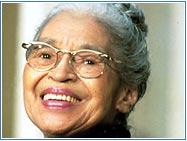 So why all this time spent on timing and precision? It determines how we approach God.
So why all this time spent on timing and precision? It determines how we approach God.
Jazz is not against timing and precision, but jazz deals with time differently. "In a jazz performance, while every bar of music should take the same amount of ‘clock time’–fill the same ‘period’–within those bars and groups of bars there is a constant sense of respiration, of infinitesimal accelerations and decelerations in the actual playing, even though the background pulse, the tempo, remains constant. A large part of the music’s meaning comes from this playing with time, this sense of being able to operate flexibly, accuratly, and freely within the implied lockstep of chronology…" (Tom Piazza)
"Playing with time." Playing with precision as opposed to being oppressed by precision.
Jazz icon Sydnew Bechet once gave the following instructions to a fellow musician, "I’m going to give you one note today…See how many ways you can play that note–growl it, smear it, flat it, sharp it, do anything you want to it. That’s how you express your feelings in this music. It’s like talking." (The History of Jazz, p50)
How would that approach change what we do with the propositions of theology?
"God is love." Spend a day with that note. See how many ways you can say it, pray it, sing it, yell it, write it, question it, prove it…until you hear it…fully.

